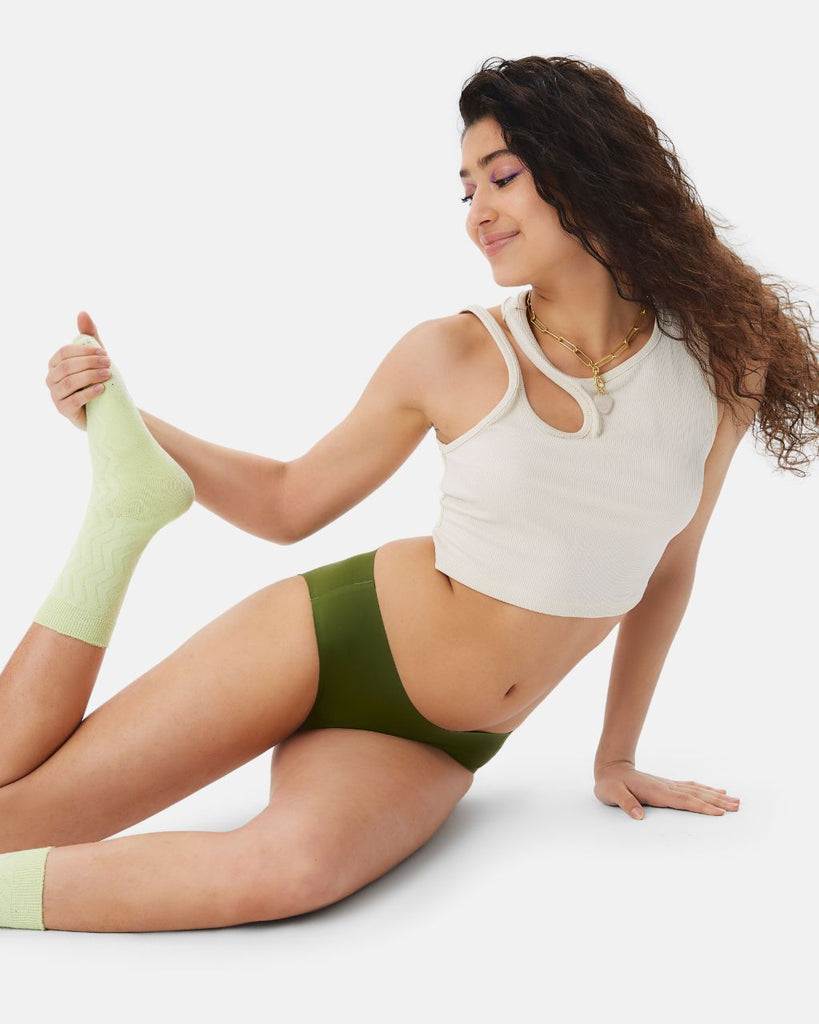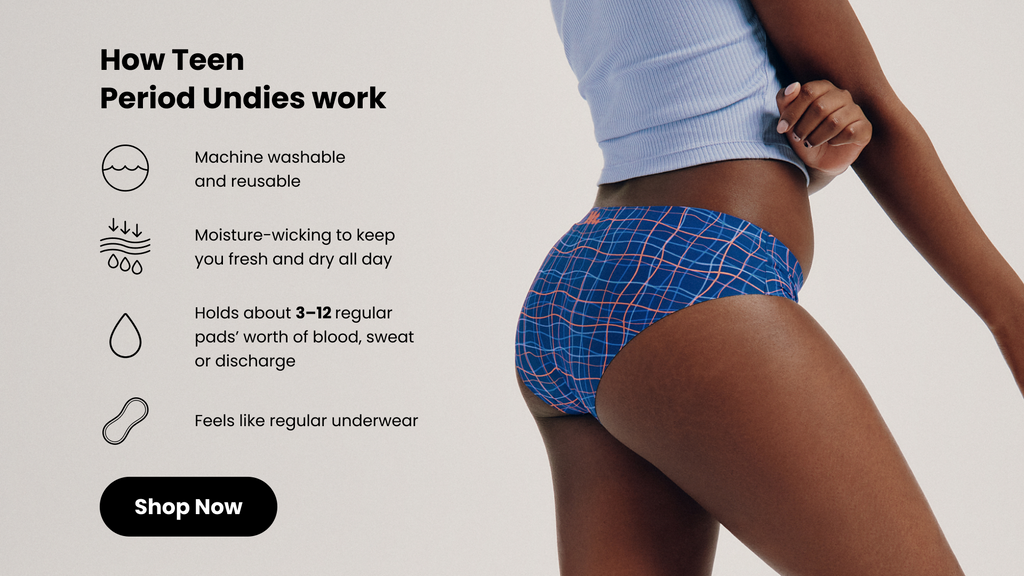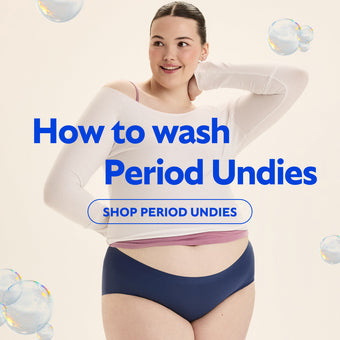If your daughter or child is going through puberty, you might want to start talking to them about periods. Think it’s a bit early? Whether they’ve experienced their first period or not, it’s still important for them to know what to expect and what’s going on in their body. (Not sure when your child will even get their period? Check out this post for some signs and symptoms that it’s on its way. The average age for a menstruator to get their period is age 12.)
Psst: The best way to make sure your tween feels confident for their first period experience? Leakproof period underwear will save the day, every time.
We know that it might feel a bit awkward at times, especially if you’ve never brought it up before, but as a parent you can create calm and comfortable lines of communication between you and your child around these topics to help ensure your child understands what a period is, what happens during it, and what they need to do about it. If you’re still unsure of what type of conversation to have, keep reading this post to find out how to talk to your daughter or child about periods and what to tell them.
Did you know? We have a free, downloadable Period Guide to walk your teen through everything they need to know about menstruation. Download Kt’s Period Guide here.
What to Expect
Talking to your child about periods should ideally happen before they get their first period so that they know what to expect when it finally occurs. Consider talking to your child about how to insert a tampon, as well as signs and symptoms of an approaching period, both physical and emotional.
Physical signs that their period might start soon include: breast bud growth and the growth of new body hair around their legs, armpits, and pubic area. Emotional signs can show up as pre-menstrual syndrome (PMS), moodiness, irritability, and food cravings. Other signs and symptoms of an oncoming period can be cramps—both in their stomach area and lower back. In addition to telling your child about the signs and symptoms, be sure to offer tips on how they can deal with these symptoms—learn more about which foods they can eat in order to help alleviate cramps.
Make sure to let your daughter or child know that their body is going through some major changes and hormone fluctuations during this period of time, and these hormone fluctuations lead to new emotions that can seem weird and unfamiliar. Changing bodies might be an awkward subject to approach but it's important that the period talk comes from you.
What Actually Happens
Your daughter or child might be wondering what actually happens during their period. Give them a quick biology lesson: Every month, women, girls, and people assigned female at birth (AFAB) have their bodies prepare for pregnancy by thickening the lining of the uterus. Then, one of their ovaries will release an egg, which will then travel through the ovary and into one of the body’s fallopian tubes, where it will wait to become fertilized and the pregnancy process to begin. If pregnancy doesn’t happen, then your body doesn’t need the thick lining in your uterus so it breaks down. The result? The lining, which is composed of blood, nutrients, and tissue flow out of your body through your vagina. Voilà, it’s your period!
Now, the period isn’t all just blood– Menstrual blood and the excess uterine tissue flow from the uterus, through the cervix, and out of the vagina. “Chunky” periods are caused by this uterine tissue (and this is perfectly normal and nothing to worry about!). In essence, this is the top level of information that your child or daughter needs to know. Are they curious for more information? Download Kt’s Free Period Guide for a more detailed look on ovulation and menstruation.
What To Do & How To Prepare
Most young people will start with using pads when they first get their period, as they tend to be the easiest to use. Consider walking your child through the various types of period care products available, from leakproof period panties (we’ve got those!) to menstrual cups to pads and tampons, as well as how to use a tampon for the first time.
It’s important to make sure that your daughter or child has all the tools they need to make safe and informed choices during and about their period. You might also want to make a Period Emergency Kit with them so they’re always prepared, or check out one of ours!
Other Things to Note
Every period and every body is different, and even though you surely can’t cover everything while talking about periods for the first time with your child, you can try to cover some of the bases. Some other topics that may come up are how to deal with period leaks at school, whether or not having a period will hurt, and getting a period at an early age.
Remember, new questions and concerns often come from experience– do your best to keep the doors of communication around menstruation and puberty open for your child, so they feel safe and comfortable coming to you with any issues or questions they may have. Puberty, and especially the process of getting their first period, can be a troubling and tumultuous time for a young pre-teen, and it’s crucial for them to feel supported as they venture on this new path. Want to read more about handling puberty as a parent? Keep reading our blog for more timeless menstruation information.
Be prepared: Shop period underwear for teens to prevent leaks once their period starts.
To download the guide in Canada, click here.










